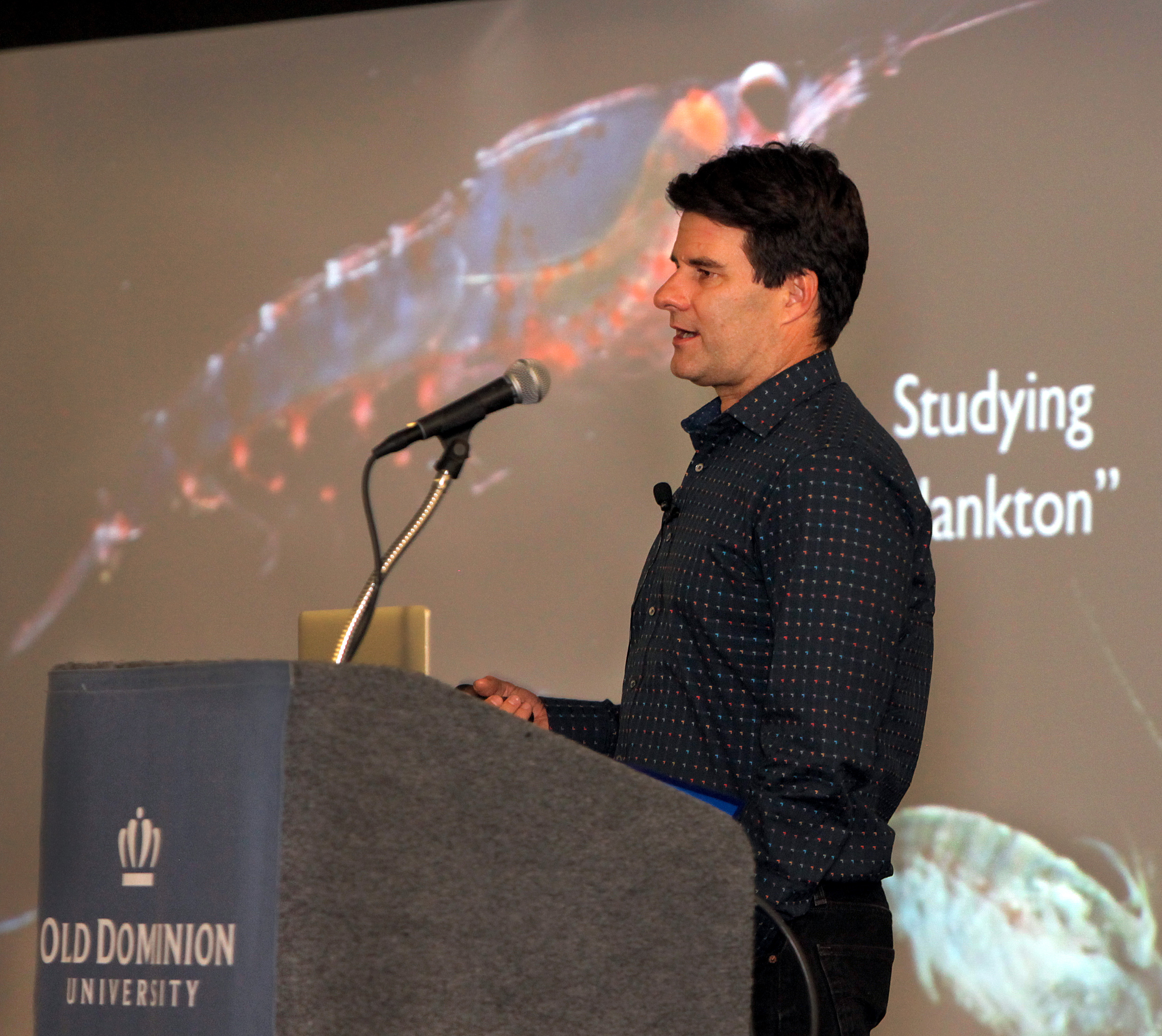Mysteries of the Deep Explored at Musselman Lecture
April 17, 2015
Famed marine biologist Steve Haddock dispelled an oceanic myth to begin the Lytton J. Musselman Natural History Lecture on Thursday night at Old Dominion's Webb University Center.
"How many people have heard about the earth being two-thirds water?" the Monterey Bay Aquarium Research Institute's lead scientist quizzed his audience of 250. "It's a total lie.
"If you account for the depth of the ocean, which on average is three miles, the earth volumetrically is pretty much 99 percent water," he continued. "And almost all of it is the deep sea. So we have this huge portion of the planet that is deep-ocean - and the question is, 'what's going on down there?'"
Haddock is among the world's most exhaustive and innovative marine explorers, explained Old Dominion assistant professor of biology Daniel Barshis, who met Haddock during his post-doctoral work at Monterey.
"Steve is of a new breed of biologists and natural historians who is asking fundamental questions about the diversity we see in the oceans," Barshis told the audience, while introducing Haddock. "And, he's using the most advanced tools available."
Haddock detailed the robots - Remotely Operated Vehicles - he and his colleagues use to investigate the vast Monterey Canyon; fascinated listeners with tales of bioluminescent creatures that produce glowing "milky seas," large enough to be captured by satellite imagery; and humorously defended the "jellies" he studies.
"Killer" jellyfish have been portrayed for more than a century as "invading the ocean" and "taking over the world," Haddock demonstrated using a display of headlines.
"This is the kind of coverage that these poor creatures get in the media," Haddock said. "People are continually rediscovering that jellyfish are in the ocean and that they bloom in periodic cycles."
Jellyfish populations are difficult to quantify, however, so Haddock said he started the "citizen science" website jellywatch.org to "tap into the army of eyeballs out there" for his database.
"We get sightings from all over the world this way," Haddock said.
The Lytton J. Musselman lecture is a continuing series named for the University's Mary Payne Hogan professor of botany. It is supported by University alumni Michael and Sue Pitchford.


